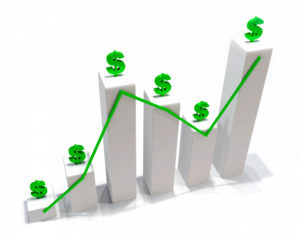Introduction to Global Stock Trading
In the ever-changing environment of global finance, developing economies have emerged as a focus point for investors seeking development and diversity. These marketplaces, which are often found in poor nations, provide unique chances for individuals who are ready to negotiate their nuances. However, great gains come with associated dangers that must be properly weighed. In this complete book, we’ll look at developing markets, including the possibilities, hazards, and techniques for effective stock trading in these dynamic economies.
What is Stock Trading?
Stock trading is the buying and selling of shares (ownership units) of publicly listed companies on stock exchanges. Traders aim to make profits by capitalizing on price fluctuations in stocks.
Stock trading can be done in different ways:
- Day Trading – Buying and selling stocks within the same trading day.
- Swing Trading – Holding stocks for several days or weeks to capitalize on price swings.
- Position Trading – A long-term approach where traders hold stocks for months or years.
What is Global Stock Trading?
Global stock trading refers to the buying and selling of stocks in markets across different countries. Instead of focusing on a single stock exchange (e.g., the New York Stock Exchange or London Stock Exchange), traders invest in stocks from multiple markets worldwide.
Why Trade Stocks Globally?
- Diversification: Reduces risk by spreading investments across different economies.
- Higher Growth Potential: Some international markets, especially emerging ones, offer higher returns.
- Access to Leading Companies: Investors can trade shares of global giants like Tesla (U.S.), Alibaba (China), or Nestlé (Switzerland).
- Hedging Against Economic Downturns: When one country’s market is struggling, another may be booming.
What are Emerging Markets?
The phrase “emerging markets” refers to an economy that is experiencing significant economic growth and shares some, but not all, of the features of a developed economy. Emerging markets are countries that are shifting from “developing” to “developed” status.
Market indices
Market indices evaluate the overall performance of the stock market. In Nigeria, the Nigerian Exchange Limited (NGX) offers indices such as the All-Share Index (ASI) as well as sector-specific indexes such as the NGX Banking Index and NGX Consumer Goods Index. These indexes monitor the performance of a set of equities to offer information about the market’s direction and trends.
Stock exchanges
Stock exchanges act as markets for buyers and sellers to trade stocks and other assets. The Nigerian Exchange Limited (NGX) is Nigeria’s major exchange for buying and selling equities. It allows corporations to list their shares and investors to participate in the market.
Why Invest in Emerging Markets?
1. High Growth Potential
Emerging economies often experience rapid GDP growth, leading to increased corporate earnings and stock market appreciation. Countries like India, Brazil, and Nigeria are seeing exponential economic expansion, making them attractive to investors.
2. Market Diversification
Investing in emerging markets allows traders to diversify their portfolios beyond developed economies like the U.S. and Europe. This reduces reliance on any single market and can mitigate risks associated with downturns in developed markets.
3. Undervalued Assets
Stocks in emerging markets are often undervalued compared to their counterparts in developed economies. This presents a buying opportunity for investors looking for assets with strong growth potential.
4. Technological Advancements
The rise of fintech, e-commerce, and digital banking in emerging economies is driving new investment opportunities. Companies that capitalize on these trends can experience exponential growth, providing lucrative returns for stock traders.
Opportunities for Emerging Market Stocks
Investing in developing market companies exposes you to businesses and areas that may be underrepresented or completely missing in established markets. For example, technology businesses in China and India have experienced tremendous expansion due to increased customer demand, innovation, and government assistance. Similarly, areas such as healthcare, banking, and consumer goods provide enticing investment possibilities as incomes rise and populations shift.
Economic Growth Potential:
Nigeria, a developing economy, has significant economic growth potential. With a fast rising population, urbanisation, and continued industrialization initiatives, the country’s GDP growth rates are skyrocketing. These elements, together with improving living standards, create profitable prospects for investors wishing to profit from Nigeria’s economic trajectory.
Untapped Market Opportunities:
Nigeria has a broad set of businesses and sectors ready for growth, including technology, consumer products, healthcare, and financial services. The country’s enormous and increasingly affluent customer base, along with a growing middle class, creates several chances for investment. Companies engaged in these industries stand to gain from tapping into Nigeria’s massive market potential and addressing its consumers’ changing wants.
Portfolio Diversification:
Incorporating Nigerian shares into an investing portfolio can increase diversity while decreasing total portfolio risk. Nigeria’s stock market frequently has minimal correlations with global markets, allowing investors to diversify their holdings and perhaps reduce risk. By diversifying their assets across locations and asset classes, investors may build a more balanced and robust portfolio.
Furthermore, many emerging market businesses compete in narrow markets or have dominating positions in their particular areas, giving them a major competitive edge. These businesses may benefit from cheaper labour costs, favourable regulatory frameworks, and closeness to rapidly rising consumer bases, so improving their growth prospects and profitability.
Managing Risks in Emerging Markets Investing
While the potential benefits of investing in developing countries are appealing, it is critical to understand the accompanying dangers. Political instability, currency volatility, regulatory difficulties, and governance concerns are among the most significant hurdles investors confront when entering these markets.
Political instability and geopolitical conflicts can cause volatility and impair commercial operations, resulting in losses for investors. Furthermore, developing market currencies may experience swings owing to variables such as inflation, interest rates, and capital movements. Investors must carefully assess currency risk and employ hedging methods to reduce its impact on their investments.
Political and Regulatory Risk:
Nigeria, like many other developing economies, is dealing with political instability and regulatory uncertainty, which may have an influence on investor morale and corporate operations. Changes in government policy, political conflicts, and regulatory reforms may all cause volatility in the market and effect investment results. To reduce possible risks, investors must remain up to date on Nigeria’s political landscape and regulatory environment.
Currency volatility:
Currency volatility is a major risk issue for Nigeria’s growing economy. Fluctuations in the Nigerian naira, caused by inflation, interest rates, and geopolitical tensions, can affect the value of foreign currency-denominated assets. Implementing hedging measures or investing in assets denominated in local currency might help investors with exposure to the Nigerian market manage currency risk.
Liquidity and Market efficiency:
Nigeria’s stock market may have lesser liquidity and market efficiency than developed markets, making it difficult to execute deals at reasonable pricing. Thin trade volumes and little investor engagement can cause price distortions and higher transaction costs. Furthermore, regulatory oversight and market infrastructure in Nigeria may still be evolving, affecting liquidity and efficiency.
Socioeconomic and Environmental Risks:
Nigeria has social and environmental difficulties such as poverty, inequality, environmental degradation, and climate change. These variables can have an impact on economic stability, social cohesion, and corporate operations, providing hazards for investors. Companies operating in Nigeria must negotiate these hurdles while maintaining solid environmental practices and social responsibility practices to ensure long-term sustainability and investor confidence.
Furthermore, regulatory frameworks in emerging countries can be opaque and unpredictable, putting investors’ interests at risk. Corporate governance standards may differ, raising problems about transparency, accountability, and shareholder rights. To reduce these risks, perform thorough due diligence and choose businesses with strong governance mechanisms.
How to Start Global Stock Trading as a Nigerian Investor
Global stock trading offers Nigerians an opportunity to invest in leading international companies like Apple, Tesla, and Amazon while also diversifying their portfolios beyond the local stock market. Here’s a step-by-step guide to help you get started:
1. Understand the Global Stock Markets
Before investing, it’s essential to know the major international stock exchanges:
- New York Stock Exchange (NYSE) & NASDAQ (USA) – Home to top tech companies like Microsoft, Google, and Amazon.
- London Stock Exchange (LSE) (UK) – Houses financial giants and energy firms.
- Shanghai Stock Exchange (SSE) & Hong Kong Stock Exchange (HKEX) (China) – Includes big names like Alibaba and Tencent.
- Euronext (Europe) – Covers stocks from countries like France, Belgium, and the Netherlands.
- National Stock Exchange (NSE) & Bombay Stock Exchange (BSE) (India) – Offers access to fast-growing tech and consumer markets.
For those looking beyond international markets, Nigeria’s NGX (Nigerian Exchange Group) also offers solid investment opportunities in banking, telecom, and oil & gas sectors.
2. Choose a Global Stock Trading Platform Available in Nigeria
To trade international stocks, you’ll need a broker that allows Nigerians to buy and sell shares globally. Some top platforms include:
- DLM Etrade – This is a platform that allows you to buy stocks of any Nigerian company in realtime
- Bamboo – Offers Nigerians access to U.S. stocks.
- Chaka – Provides trading in U.S. and Nigerian stocks.
- Risevest – Allows Nigerians to invest in global assets.
- Trove – Supports fractional investing in foreign and local stocks.
- Interactive Brokers – A well-known global broker with access to multiple markets.
Factors to Consider When Choosing a Broker:
1) Market Access – Can you trade in U.S., UK, or Asian markets?
2) Deposit & Withdrawal Options – Can you fund your account with Naira or USD?
3) Fees & Commissions – Look out for trading fees and withdrawal charges.
4) Regulation & Security – Ensure the platform is licensed and reliable.
3. Open a USD Trading Account
Most global brokers operate in U.S. dollars (USD), so you may need a dollar account (Domiciliary Account) to deposit and withdraw funds easily. If your broker allows Naira deposits, they’ll typically convert it to USD at the current exchange rate.
4. Research & Pick the Right Stocks
Before investing in any stock, consider:
1) Fundamental Analysis – Check a company’s financial performance, revenue growth, and long-term potential.
2) Technical Analysis – Use stock charts and indicators to predict price movements.
3) Global Economic Trends – Monitor interest rate changes, inflation, and industry trends.
Top Sectors to Watch for Nigerians Investing Globally:
- Technology: Apple, Microsoft, Nvidia, Google.
- E-commerce: Amazon, Alibaba.
- Finance: JP Morgan, Visa, Mastercard.
- Renewable Energy: Tesla, NextEra Energy.
Useful research platforms:
- Yahoo Finance – Stock news and updates.
- TradingView – Advanced technical analysis.
- Bloomberg & Reuters – Global financial news.
5. Manage Risks in Global Stock Trading
Investing in foreign markets can be rewarding, but it comes with risks. Here’s how to protect yourself:
1) Diversification – Don’t put all your money in one stock or country. Spread your investments.
2) Currency Fluctuation Risks – The Naira/USD exchange rate affects your returns, so plan accordingly.
3) Use Stop-Loss Orders – Automatically sell a stock if it drops to a certain level to avoid heavy losses.
4) Stay Updated on Global Events – Political, economic, and regulatory news can impact stock prices.
6. Start Trading and Monitor Your Investments
Once you’ve funded your account and picked your stocks, place your trades. Keep track of:
- Market trends and earnings reports.
- Interest rate changes in the U.S. and other countries.
- Global events that may affect stock prices.
Many trading platforms offer mobile apps, allowing you to monitor your investments from Nigeria in real time.
Conclusion to Emerging Markets
Emerging economies provide global stock traders with a compelling combination of growth prospects, diversification benefits, and unique investment options. However, navigating these markets necessitates careful evaluation of the risks involved and the adoption of solid investing techniques. By understanding the characteristics of developing economies, undertaking comprehensive research, and exercising caution, investors may position themselves to profit from these dynamic areas’ economic trajectory while protecting their portfolios from possible dangers. As the global economy evolves, developing markets will play an increasingly important role in generating investor returns and influencing the future of global stock trading.
Global stock trading gives Nigerians access to the world’s biggest markets and high-growth opportunities. By choosing the right broker, conducting proper research, and managing risks, you can build a profitable investment portfolio beyond the Nigerian economy.





